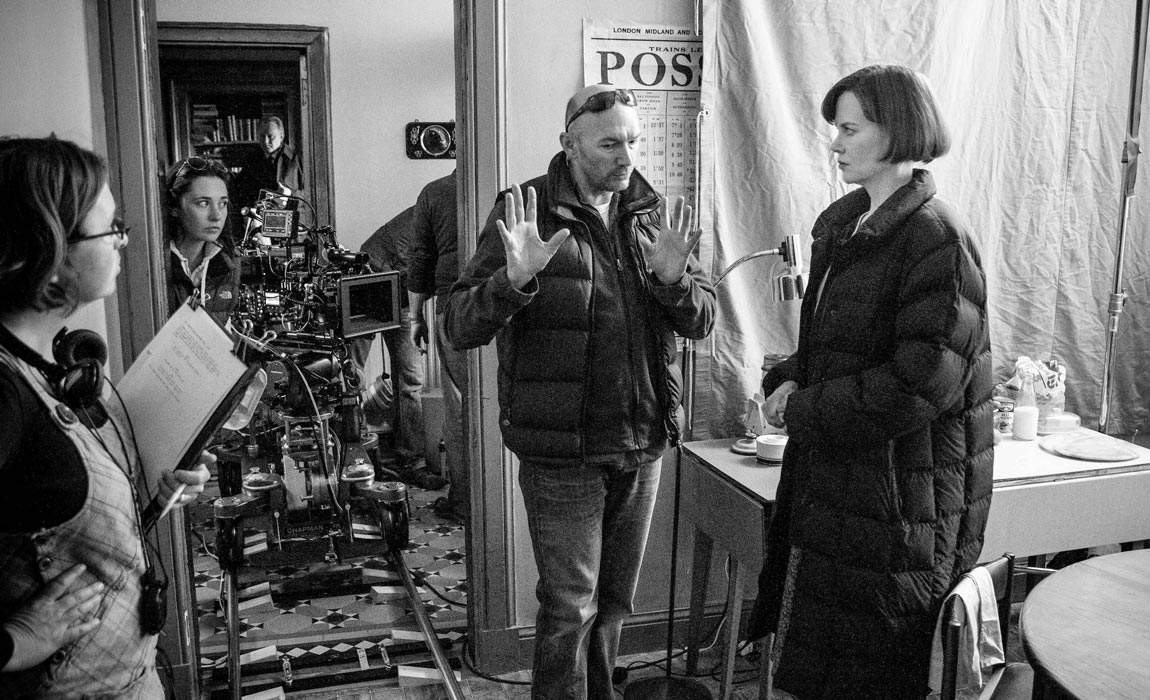How War Became Both Beautiful and Traumatic for The Railway Man
Jonathan Teplitzky on war, visual irony and how Gen Ys respond to silence.
Colin Firth and Nicole Kidman are Eric Lomax and Patti Lomax, lovers at the centre of a world torn apart by Eric's repressed memories as a prisoner of war in The Railway Man. Marcus Costello spoke with the film's Australian director Jonathan Teplitzky, who also made a big impression with 2011's Burning Man.

The life of Eric Lomax, a quintessentially British man from another generation, set between Scotland and South-East Asia. How does an Australian director's perspective lend itself to this story?
Going into this production, I thought the code of silence thing was a distinctly English POW character trait. I soon realised that it doesn't matter where you're from, if you were part of WWII, you come home with stories you will never share.
Is that still the case for soldiers today?
Yeah, sadly, I think it is. The irony is that we send young, impressionable people to war under morally dubious reasons, morally bankrupt, even, and we hold them to account for every moral decision they make when they're out there. If you think about how young these guys actually are, it's almost a 'Lord of the Flies' situation. No wonder they come home confused and reluctant to talk about it. I was talking with journalists at the Dubai Film Festival the other week and they were saying how important this film is for that part of the world as it struggles to deal with the warfare surrounding it.
To that end, did you think about how your film would be received by present-day soldiers?
Absolutely. In so many the face of warfare has changed beyond recognition since WWII, and yet, completely ineffective techniques like water-boarding are still used today.
We live in a tell-all age of social media. Presented with an intensely private character, Eric Lomax, how do you expect/hope young people to respond?
That's a really interesting question. The core audience we had front-of-mind when we were making the film was men above 35. In the test screenings we've noticed that younger people are genuinely interested in it. For all the negative press that the social media generation gets, I actually think it's a very inquisitive, socially aware group.
The film looks beautiful. But war isn't beautiful. Can you talk me through your aesthetic choices?
Sure. As a 20-year-old, going to War — to Thailand no less! — was a big adventure for Eric, so mixed up in fear and anxiety was a genuine sense of excitement. Of course we know the story of WWII — it was no exotic holiday — but to portray it like that wouldn't have been an accurate view of the world through his eyes. The heat, the incredible lushness of South-East Asia's forests was unlike anything this young Scot had ever experienced or really known about. To convey that wonder we heightened the contrasts between the countries: we sought out blues and greens when we where in Scotland, and hot colours when we where in Thailand, for example.
I ask because there were a couple of moments during the film where I was in there with Eric then he'd see something like an explosion framed by silhouetted palm trees, and all of a sudden I was made aware that I'm looking at a representation. Did you ever feel a need to hold back because Thailand is just so photogenic?
But I relish those moments! I try to do it as much as I can in the films I make! For me, the visual irony is key. It brings into question the absurdity of what's happening. Naturalism isn't always the only or the best way to give an authentic impression, as strange as that may sound.
Given that taste for flourish, where there times when you felt constrained by having to tell a true-to-history story
We were very lucky to have such a good relationship with Eric and Patti who were both so open but even still, I never felt obliged to tell something a certain way. I honestly never felt constrained. I can say that because I don't think getting every factual detail perfect is the aim of this kind of story. I think it's about capturing an essence and finding a way of expressing that.

The Railway Man is in cinemas this Thursday, January 23. Read our review here.







